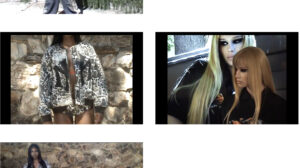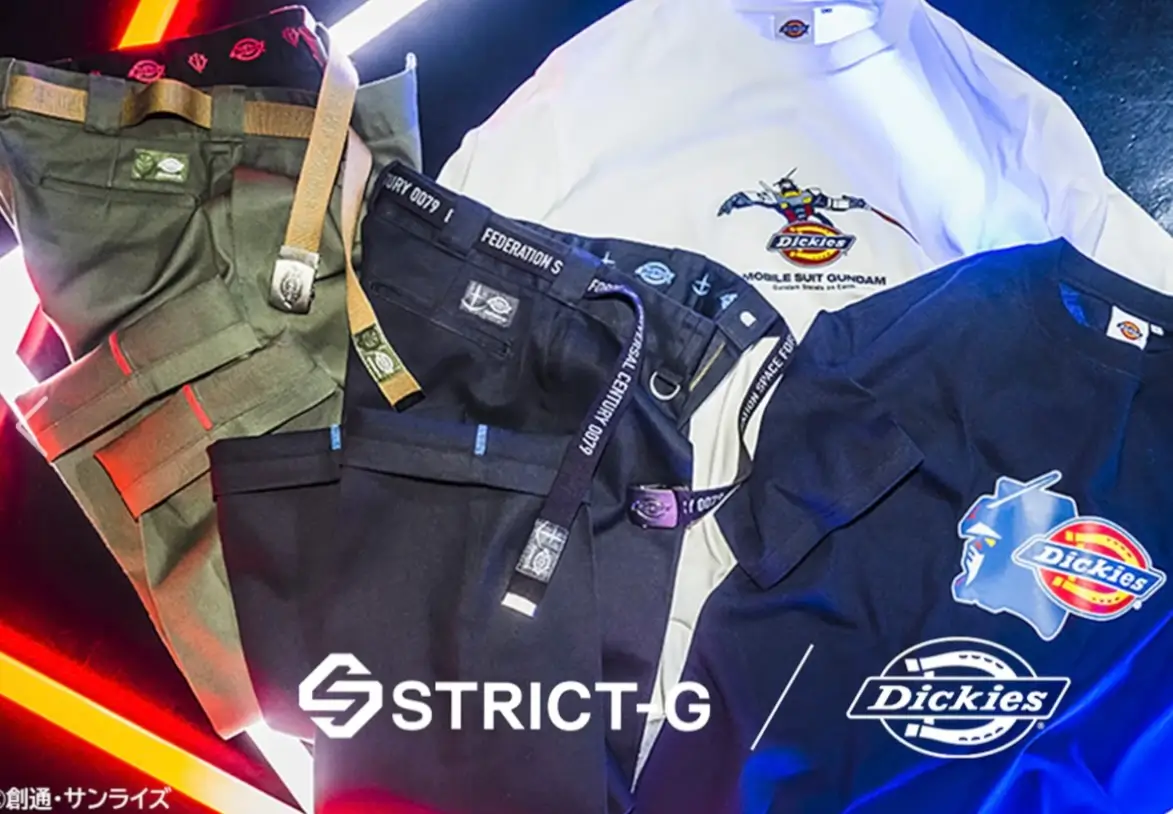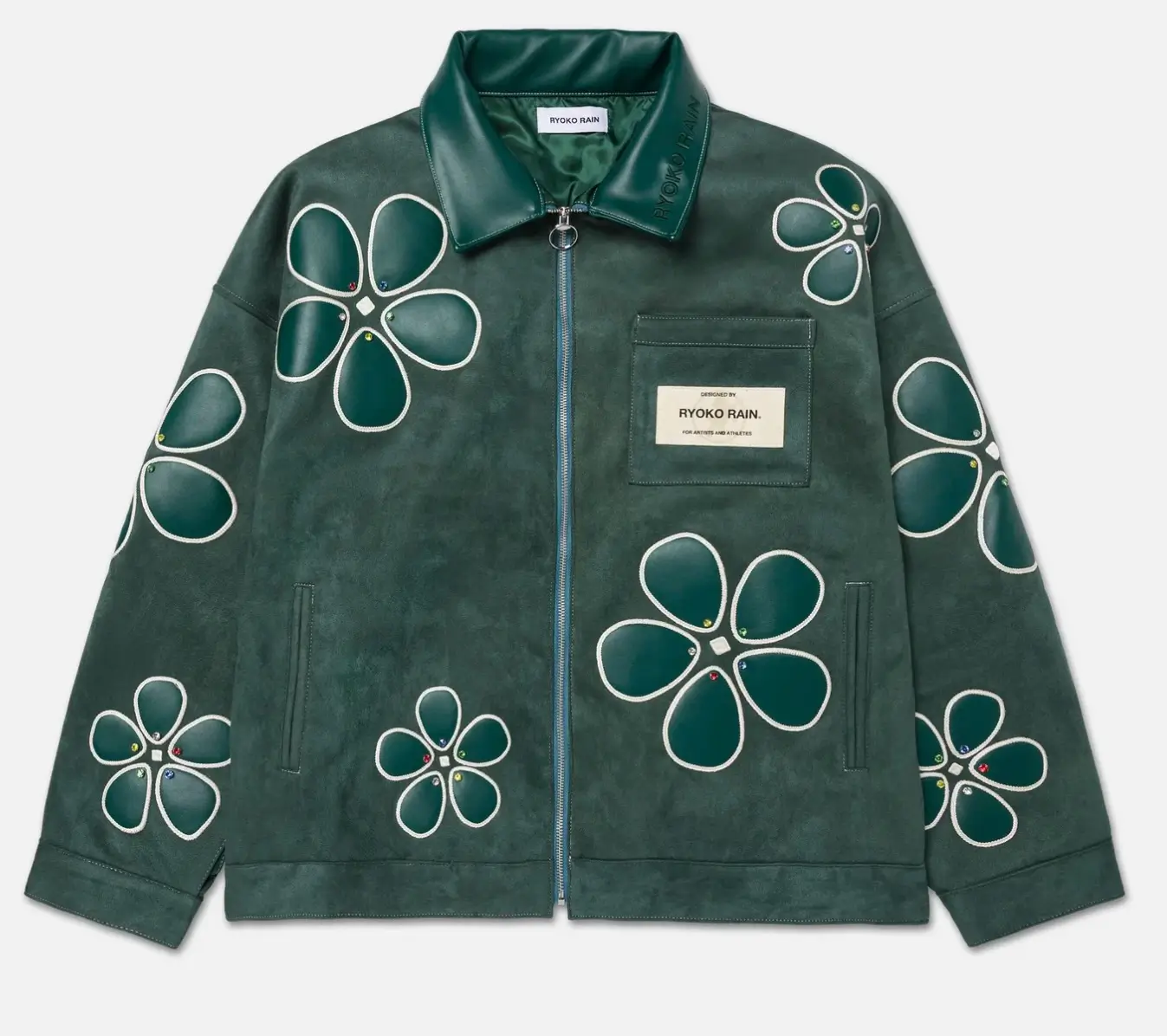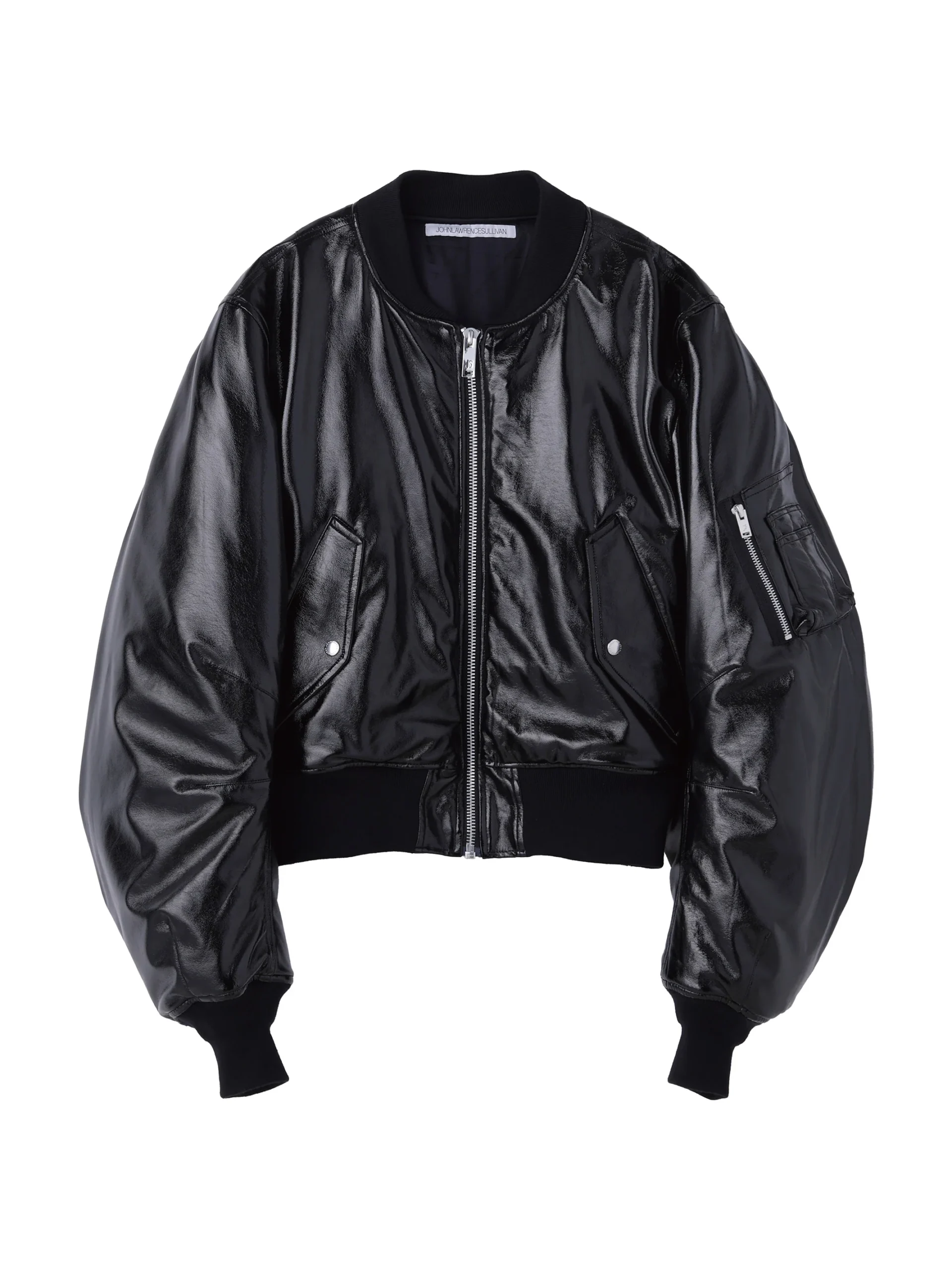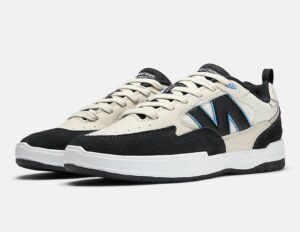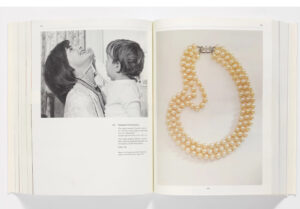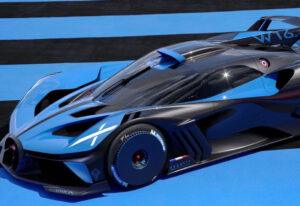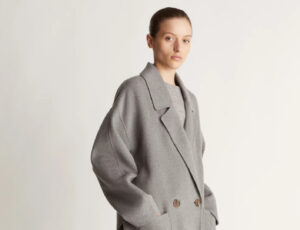When two fashion rule-breakers link up, the result isn’t just a capsule collection—it’s a statement. This spring, KSUBI and Mowalola have come together for a merge that feels more like a rebellion than a release. With just nine pieces, the collection punches above its weight, tearing through expectations and baring its teeth with nature-inspired ferocity and cultural symbolism.
It’s rare to find two brands that mirror each other this well—KSUBI, the Australian denim disruptor with punk DNA, and Mowalola Ogunlesi, the Lagos-born, London-based designer whose work has been described as both prophetic and feral. This isn’t just a meeting of aesthetics. It’s a shared ideology: anti-perfection, pro-expression, and always unapologetic.
So what does it look like when you fuse KSUBI’s raw edge with Mowalola’s gender-defiant, culturally saturated vision? It looks like a barking rottweiler on a shirt. Like cheetah prints that distort across denim and hoodies. Like New York Yankees branding that’s been hijacked and turned into fashion code. It’s disruptive. It’s deliberate. And it’s exactly what both brands have always stood for.
ORIGIN STORIES: BUILT FROM DEFIANCE
To fully comprehend this union, you have to understand the DNA of both brands.
KSUBI (originally founded in 1999 in Sydney) was born out of frustration with what the founders saw as a stale fashion environment. The label’s early identity was shaped by distressed denim, anti-commercialism, and guerrilla-style marketing stunts—including releasing rats on the runway. Over time, KSUBI built a cult following among creatives, musicians, and artists. It didn’t beg for approval—it challenged the system, reshaping denim into a symbol of rebellion.
Mowalola, founded by Nigerian-British designer Mowalola Ogunlesi, burst onto the scene in 2019, quickly becoming one of fashion’s most talked-about voices. Known for her hyper-sexualized, gender-fluid silhouettes and neon-soaked palettes, her designs pull from a rich tapestry of African culture, underground music scenes, and social resistance. She’s dressed Kanye, was appointed design director at YEEZY GAP, and has refused—again and again—to fit into any box.
Put them together, and you don’t get compromise. You get collision. And this 9-piece capsule is built around that very principle.
THE COLLECTION: ANIMAL INSTINCT MEETS URBAN ARMOR
At the core of the KSUBI x Mowalola collection is a primal energy—a kind of stylized aggression that reimagines fashion not as a luxury product, but as survival gear for modern identity.
Leading the pack is the rottweiler print buttonless polo shirt—a literal bark, not just a metaphor. The rottweiler, long associated with loyalty, strength, and fearlessness, serves as the mascot for this drop. Positioned front and center, it stares the viewer down, asserting dominance.
Then comes the cheetah print, used not as decoration but as a visual manifesto. It appears across:
- A cropped long sleeve top, exuding energy and tension.
- A skirt, subverting animal print’s traditional gendered or glam-coded use.
- A classic bomber jacket, evoking both rave wear and riot gear.
- A New York Yankees hoodie, reworked with embossed logos and layered aggression.
- A pair of KSUBI’s signature denim trousers, with the print fused into the fabric like scars or stripes.
In a standout piece, the second pair of jeans literally “sheds” the cheetah print down the legs—a symbolic skin-shedding that nods to transformation, personal evolution, and both brands’ rise through the fashion ranks.
Together, the collection creates a kind of urban safari: primal markings, twisted sportswear cues, and street-coded silhouettes with runway-level detail. But more than that, it’s about identity as armor—clothing that demands space, signals origin, and resists dilution.
DESIGN CODES AND CULTURAL REBELLION
From a technical standpoint, each piece in the KSUBI x Mowalola collection is sharp, durable, and designed to hold. But it’s the symbolism and styling language that give the collaboration its teeth.
Take the New York Yankees logo, for example—a historically masculine, Americana-coded symbol. In this collection, it’s subverted. It’s not just a logo. It’s camouflage. It’s a question: who owns these symbols, and what happens when you distort them?
Mowalola’s influence is heavy in the genderless silhouettes and cultural cues. There’s no clear “menswear” or “womenswear” division. It’s all fluid. And that’s the point—this collection isn’t about fitting in. It’s about shapeshifting.
KSUBI’s fingerprint is clearest in the denim—distressed, heavy, and cut to emphasize movement rather than polish. But even the classic KSUBI elements feel warped in this collection, pushed further toward chaos.
The message is clear: this isn’t for mass appeal. This is for the outliers.
THE CAMPAIGN: VISUAL ANARCHY
The campaign imagery is as visceral as the collection itself. Shot in low light, with gritty textures and shadowy contrasts, the photos evoke a dystopian nightclub or a post-apocalyptic alley. Models pose with animalistic intensity—sometimes crouched, sometimes defiant, always aware of the lens.
There’s no softness here. No polished smiles. No empty glamour.
This is fashion as confrontation.
The visuals don’t just showcase the clothes—they expand the universe the clothes belong to. A world where self-expression is survival. Where tribalism exists through style. Where cities are wild terrains, and clothing is your camouflage, your weapon, your signal.
WHERE TO BUY: GLOBAL DROP, LOCAL IMPACT
The collection is available now on both brands’ websites and in select retail locations across key cities: New York, Los Angeles, Miami, London, Sydney, and Melbourne. These aren’t random picks—they’re cultural hotspots where both brands have found real traction. Places where the energy of the collaboration already exists in the air.
With only nine pieces in the collection, the release feels tight, curated, and intentional. It’s not a money grab. It’s a moment. A drop designed for maximum impact, minimum filler.
FASHION AS RESISTANCE: WHAT THIS DROP REALLY MEANS
In 2025, fashion is more polarized than ever. On one side, you have quiet luxury—beige minimalism, stealth wealth, corporate-safe design. On the other, there’s something raw re-emerging. A pushback against erasure. A hunger for identity that refuses to be sanded down.
For KSUBI, this flow reaffirms its commitment to creative partnerships that push the brand forward without selling out. For Mowalola, it’s another notch in her expanding universe—a reminder that her vision doesn’t shrink to fit anyone else’s rules.
No comments yet.


